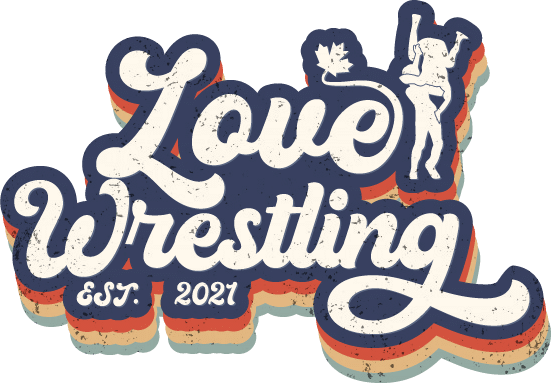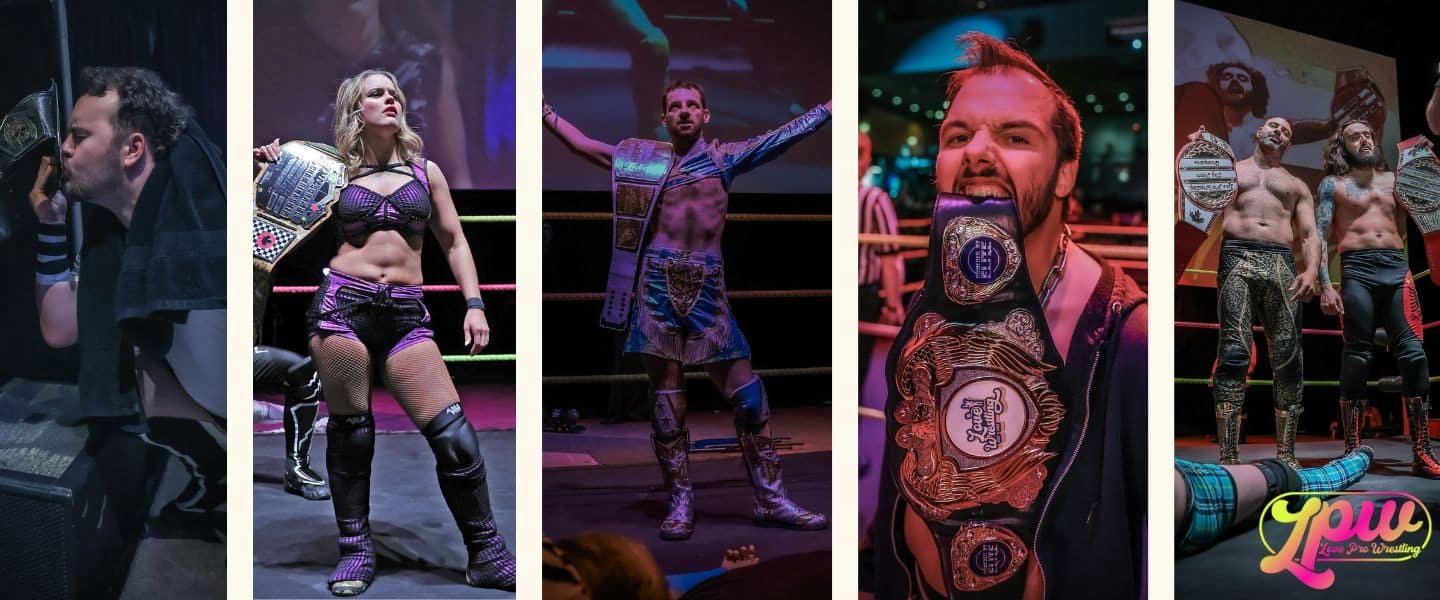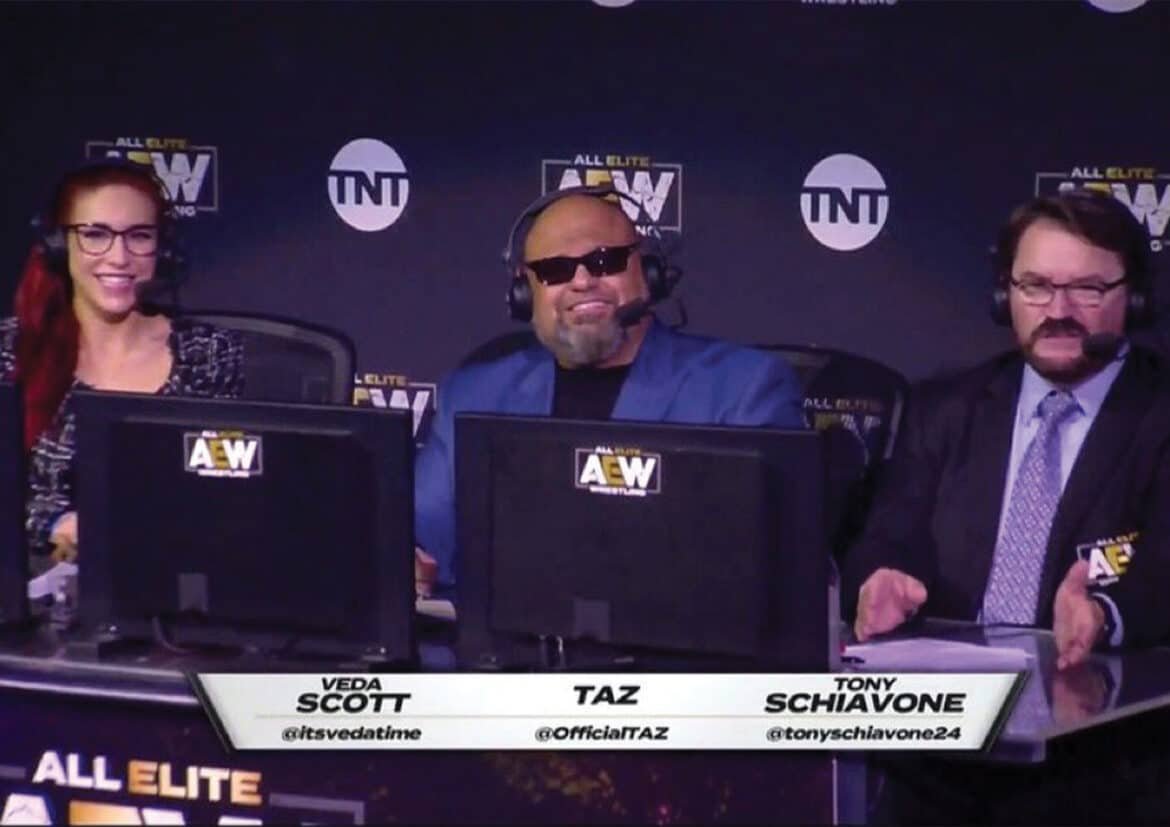As one of professional wrestling’s most prominent commentators, there are few with the insight into the position that Veda Scott has. Since their introduction to commentary with Ring of Honor, Scott has taken part in hundreds of broadcasts and pro wrestling presentations with some of the industry’s top talents.
However, since their inaugural days behind the mic, not only has their perspective on the role changed, but so has the role itself. I asked Veda about the differences in commentary when they first started versus now, as well as about a few commentators that they believe are continuing to make a positive impact on both commentary and wrestling as a whole.
“Working for so many independent promotions over the last little bit, you’ve worked with some of the best of the best, I’d have to assume and not that I’ve been lucky enough to listen to some of the worst of the worst, potentially, but who are some of those great individuals, or who are some of those people pushing it forward?”
“Oh, gosh,” they began. “I have not had the opportunity to work with Alyssa Marino yet on commentary. But, she is someone who I know feels very strongly the same way I do about sort of progressing broadcasting and just highlighting people versus, again, I keep saying fighting against them. She’s someone who I haven’t had the opportunity to work with yet, and a lot of times, she’ll be doing commentary while I’m wrestling, or I’ll be doing commentary in the show so, therefore, she didn’t come in for the show. So, the paths have not – we’ve not been able to sit at a table together, but I’m really looking forward to that.”
“Someone I worked with just two weeks ago, three weeks ago, for the first time was Sam Leterna, who I know you’re familiar with her,” they continued. “She’s someone who, she’s focused really hard on ring announcing and hosting, but is starting to do a bit more commentary. She’s someone else who just sort of shares that vision of just presenting a respectful and fun product that doesn’t have that mean edge to it if that makes sense.”
“You can poke fun without being crass,” I interjected.
“Right,” Scott confirmed. “You don’t have to make fun of what’s happening in front of you.
Pro wrestling makes fun of itself. Like, pro wrestling is ridiculous. As an art form, it kind of makes fun of itself. I think that there’s a line between taking everything you’re seeing seriously, but also not being so serious about it that you sort of disparage the work in front of you.”
Scott continued to highlight a number of other personal favourite commentators and compatriots.
“I know that you guys have been promoting it, I’ve been doing the commentary for the past season of Enjoy Wrestling with Rich Bocchini. He is someone who I had, again, never had the opportunity to work with before, but really admired his work. He’s someone [whose] method of announcing is very – well, his background is in sports broadcasting, so it’s very hyper-realistic.”
“Kevin Kelly and Ian Riccaboni have very similar styles of [that] its very legit and sports announcing style. Being around that, I’ve learned so much. But, he’s still very funny, he still has an awesome personality. He’s sort of weaving in between the line of like, he calls wrestling like it’s very serious like this is real. But, also, he injects a lot of personality into it.
I think someone like him, or like a Lenny Leonard, who oftentimes does [commentary] solo. He’s back with Ring of Honor right now for the women’s tournament but does a lot of solo commentary, where he kind of has to play both sides, his personality along with the play-by-play.”
The Changing Role of Commentators
As they continued, Scott gave some insight into the changing role of pro wrestling commentators.
“These are people who I think are just – they take what they do really seriously, and that’s something that I really admire because I think I take everything really seriously in a fun way. I want the wrestlers who are watching the footage later to be happy with it, and I want fans to be comfortable watching the shows. I think that’s a big thing. Especially in the past year, year and a half we’ve come up upon is that there’s a lot of fans who have been alienated from pro wrestling because they’re just not comfortable with maybe the announcing, they’re not comfortable with even the online antics of some of the people involved. They’re just not comfortable with the performers and the product.
“
“I think that it’s up to us to provide not just a welcoming environment but to know that you know that when you’re listening, you’re not going to hear anything that’s going to be triggering or overly offensive to you,” Scott concluded. “We can be offensive in terms of like edginess. I don’t want to say that. But like, there’s a big difference between – I don’t personally use a lot of profanity, but there’s a big difference between that and then just like some sort of sexist joke that just turns someone off forever. They never come back. I think that’s important, too, is sort of understanding that you’re performing for an audience, and we need to keep the audience around.”
Don’t forget, set a reminder for the launch of our full conversation with Veda Scott this Friday! Please credit Spencer Love/Love Wrestling with any of the above transcriptions. Thank you!


